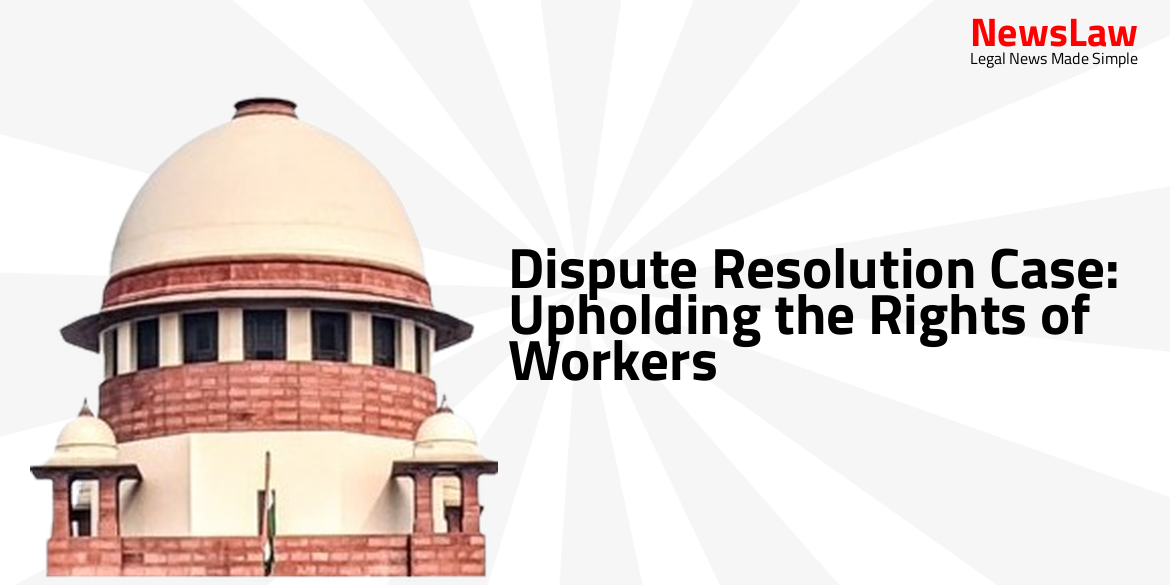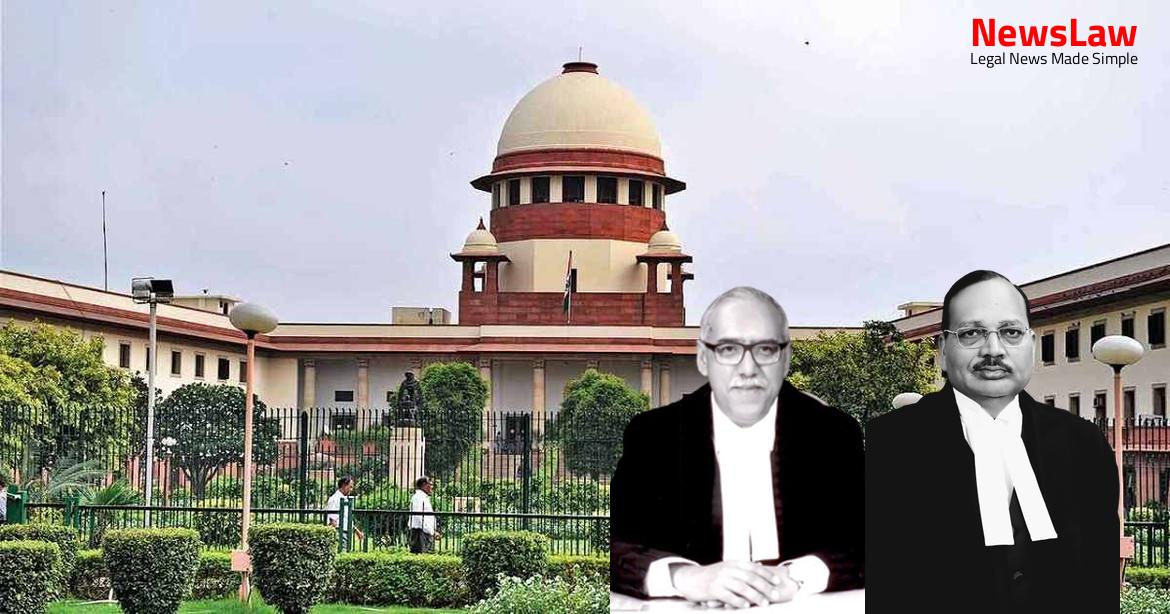In a recent judgment by the Delhi High Court, the case of dispute resolution between the workers and the management has been examined. The court delves into allegations of illegal termination and abandonment of duties, highlighting the rights and responsibilities of both parties involved. Stay tuned to know how the court addressed the concerns of the workers and ensured justice in the case.
Facts
- Petitioner joined the organization as Sample Tailor on 19 February, 2002 with a monthly salary of Rs. 4,107.
- Petitioner requested benefits like legal facilities, double overtime, and leave, which were denied by the management.
- Petitioner was terminated without notice or a domestic enquiry on 8 December, 2008.
- Labour Inspector visited the management and petitioner was given earned wages but not reinstated.
- Petitioner filed a case for benefits and reinstatement before the Labour Conciliation Officer and later transferred to the Labour Court on 1 October, 2008.
- Petitioner raised an industrial dispute seeking reinstatement (LID no. 726/2016).
- Petitioner sent a legal notice for illegal termination on 15 December, 2008 with no response from the management.
- Petitioner filed a complaint before the Assistant Labour Commissioner on 15 December, 2008, where earned wages were given but reinstatement did not occur.
- Batch of petitions filed by various workmen/claimants against the management seeking quashing of the awards denying reinstatement.
- Impugned award dated 7 September, 2018 rejected the industrial dispute for reinstatement citing abandonment of jobs by the workmen/claimants.
Issue
- Whether the workman was terminated illegally and/or unjustifiably by the management?
- Whether the workman has abandoned his duties w.e.f. 12.2008 by remaining unauthorizedly absent?
Arguments
- The petitioner argues that the respondent offered a meagre monetary settlement as compensation, indicating acknowledgment of wrongdoing towards the petitioner.
- The Labour Court overlooked crucial evidence regarding the petitioner not being allowed to rejoin duties at the Manesar unit by the management.
- The Labour Court relied on letters sent via the Union instead of directly to the petitioner, ignoring the petitioner’s attempts to communicate and rejoin.
- The award passed by the Labour Court is deemed erroneous and arbitrary, violating the petitioner’s rights and warranting to be set aside.
- The management’s denial of keeping all 22 workers on the job was highlighted, showing discrepancies in their actions.
- The impacts of illegal termination on the petitioner and their family in terms of livelihood and opportunities are emphasized.
- The petitioner asserts that the impugned award violates fundamental rights under the Constitution of India, leading to the filing of the present petition.
- Management contends that the petitioner abandoned his services by remaining absent without authorization since December 8, 2008.
- Petitioner admitted receiving labor welfare benefits and never complained about not receiving them.
- Petitioner had no documentation to support his claim of working overtime during his employment.
- Petitioner admitted to not instructing the Union to file a general demand case against the management.
- Management sent multiple reminders to petitioner to report to duty, warning of disciplinary action if he continued to be absent without approval.
Analysis
- Abandonment of service is defined as voluntarily leaving one’s employment permanently.
- For abandonment to be established, there must be clear intention on the part of the employee to not return to work.
- Employer must give notice and conduct an inquiry before terminating based on abandonment.
- Mere allegation of abandonment is not sufficient; it must be proven with evidence of the employee’s intention.
- Long absence without intimation can be considered abandonment of service.
- The Supreme Court has emphasized that factual findings by tribunals are final unless perverse or based on no evidence.
- Absence from duty for a prolonged period may lead to voluntary abandonment of service.
- If a person is absent beyond allowed leave period, they may be deemed to have resigned.
- Illegally terminated employees may be entitled to full back wages, minus income from other employment during the enforced idleness.
- The claimant failed to provide any evidence that he ever worked overtime for the management.
- The claimant admitted to receiving letters from the management asking him to return to work after unauthorized absence but did not join his duties.
- The management offered the claimant the opportunity to rejoin and presented evidence showing they did not terminate his services.
- The claimant admitted to never filing a complaint or application regarding not being allowed to rejoin his duties.
- The claimant’s name was still on the management’s muster roll, indicating his services were not terminated.
- The court found that the claimant voluntarily abandoned his job by remaining absent without authorization.
- The court concluded that the claimant did not provide sufficient evidence to prove illegal termination or abandonment of services.
- The claimant admitted to receiving multiple reminders and offers to rejoin, but did not resume duties.
- The management’s efforts to call the claimant back to work were acknowledged, but the claimant did not accept the offers.
- A lack of evidence and admissions by the claimant led to the dismissal of his claim petition.
- The Court upholds the impugned award dated 7 September, 2018 by the Labour Court – IX, Dwarka Courts, Delhi.
- No merit found to interfere with the Labour Court’s decision.
- The findings of the Labour Court stating that the petitioners abandoned their services were upheld.
- Allegations of illegal termination by the management were rejected.
- The petitioners failed to present any propositions to support their case.
Decision
- The impugned award in each of the connected petitions is upheld by the Court.
- The batch of petitions is dismissed by the Court.
- All pending applications, if any, are also dismissed.
Case Title: MUSTAFA ALAM Vs. AT HOME INDIA PVT. LTD. AND ANR. (2024:DHC:3790)
Case Number: W.P.(C)-1555/2019



